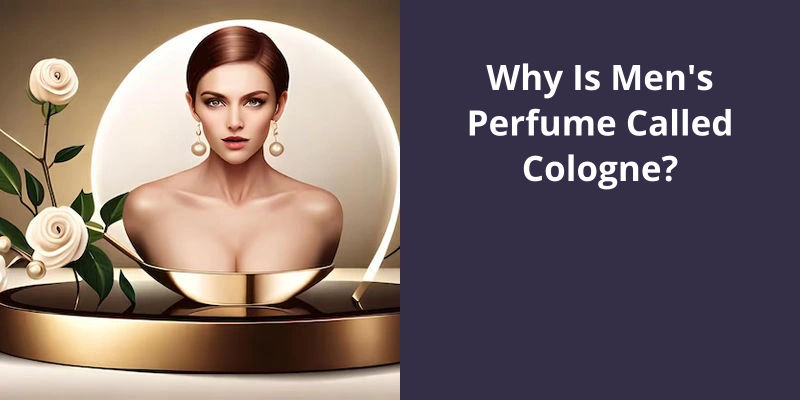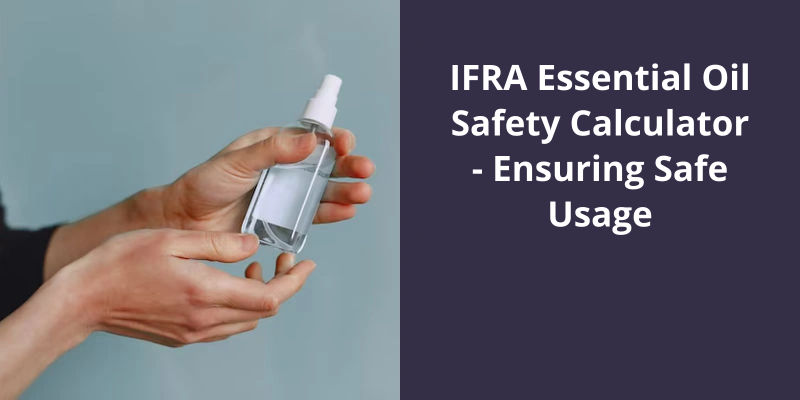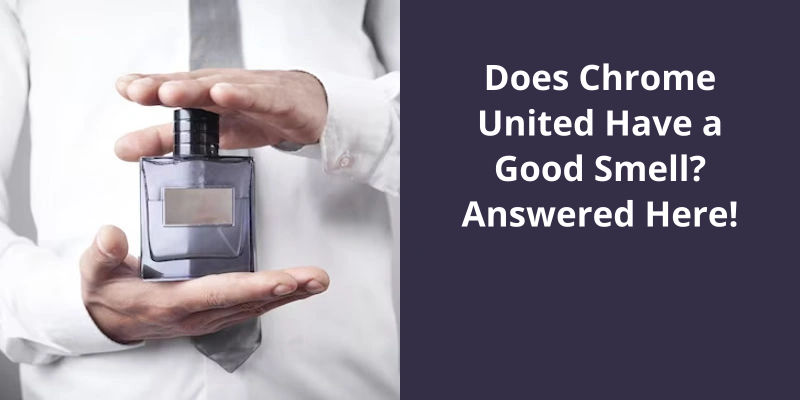Men’s perfume is often called cologne due to its origins in Cologne, Germany. Back in the 18th century, a perfume maker from this city created a light, fresh scent known as Eau de Cologne, which was different from the traditionally dominant, heavy perfumes. This fragrance became popular predominantly with men, leading to the association of the term “cologne” with men’s fragrances. Consequently, even though cologne technically refers to a type of perfume with a particular concentration of fragrance oils, in casual usage, it has become synonymous with men’s perfume.

What Is a Man’s Perfume Called?
While many people use the term “cologne” to refer to all mens perfumes, there are actually different types of fragrances for men. One of the most popular types is the eau de toilette, which is a lighter scent that’s typically used for everyday wear. Eau de parfum, on the other hand, is a more concentrated fragrance that’s typically used for special occasions or more formal events.
Other types of mens fragrances include aftershave, which is used to soothe the skin after shaving, and body spray, which is a lighter fragrance that’s often used as a refreshing spray throughout the day. Some men also prefer to use fragranced deodorants or powders to help keep them smelling fresh.
One thing that many people don’t realize is that mens fragrances can be influenced by a variety of factors, including the individuals body chemistry and the climate in which they live. For example, a fragrance that smells great on someone in a warm, humid climate might not have the same effect on someone living in a dry, cooler climate.
When choosing a fragrance, it’s important to consider not only the scent itself but also how it will interact with your skin and with the environment around you. Some fragrances may be too overpowering or synthetic, while others may be too subtle to make an impact.
Whether you prefer a classic, masculine scent or something more modern and unique, there’s a mens fragrance out there for every taste and preference.
However, choosing the right cologne can be overwhelming, especially with the countless options available in the market.
What’s the Point of Cologne?
The purpose of cologne is to provide a pleasant fragrance to an individuals body. It’s usually applied to the skin, and the aroma can last for several hours. It can also be a way to express ones own personal style or to enhance an outfit.
Cologne can be made from a variety of scents, ranging from floral to spicy to musky. The choice of cologne depends on the individuals preference and the occasion. Some choose light, fresh scents for daytime use, while others opt for heavier, more intense fragrances for evening events.
While cologne was traditionally marketed towards men, more and more women are embracing the use of cologne as well. This trend towards unisex fragrance is reflective of a broader cultural shift towards gender inclusivity and breaking down gender stereotypes. Cologne has become a way for people to express themselves and their individuality without conforming to traditional gender roles.
A pleasant fragrance can uplift ones spirits, create a sense of calm, or even evoke fond memories. This is why many people turn to their favorite cologne when they’re feeling stressed or overwhelmed.
The History of Cologne: Where Did Cologne Originate From and How Has It Evolved Over Time?
This topic explores the origins and evolution of cologne over time. It delves into the history of this fragrant product, tracing it’s roots to ancient times and exploring how it’s changed and developed over the centuries. Through this investigation, it sheds light on the fascinating history of an essential facet of human culture and tradition.
However, the question of whether or not men should always wear perfume is a bit more complex than a simple yes or no. There are various factors that come into play when deciding if, when, and how much fragrance to wear, and it largely depends on personal preference, occasion, and cultural norms.
Should Men Always Wear Perfume?
However, the question of whether men should always wear perfume is a bit more complicated than a simple yes or no answer. While wearing a scent can certainly enhance your overall appearance and appeal, it’s important to remember that fragrances aren’t one-size-fits-all. In other words, what smells good on one person may not necessarily work for another.
One factor to consider when deciding whether to wear perfume is the occasion. For example, if you work in a formal office environment, you may want to choose a subtle fragrance that won’t overpower your colleagues. On the other hand, if youre going out for a night on the town, you may want to opt for something a bit more intense.
Of course, it’s also important to consider the potential downsides of wearing perfume. For example, certain scents can trigger allergies or cause headaches for some individuals. Additionally, some workplaces have strict policies against wearing perfumes or other scented products, so it’s important to be aware of any restrictions before making a decision.
If you enjoy wearing fragrance and find it enhances your overall style and confidence, then go for it. Just be aware of any potential downsides and make sure to choose a scent that works for you and the occasion.
How to Choose the Right Perfume for Your Skin Type
When selecting a perfume, focus on the fragrance notes that work best with your skin type. For oily skin, choose lighter fragrances. For dry skin, pick a fragrance with more oils to moisturize. Pay attention to the fragrance’s staying power as well, as it can change due to skin type. Finally, try a sample on your skin and see how it smells after a few hours. This will help you decide if the scent is right for you.
While the terms “cologne” and “perfume” are often used interchangeably, there’s a distinction between the two. Despite their similar scents and packaging, they differ in their concentration of fragrant oils and their intended use. Let’s take a closer look at why cologne isn’t necessarily called perfume, and what sets them apart.
Why Is Cologne Not Called Perfume?
The term perfume originates from the Latin word “per fumum,” which means “through smoke.”. The word was often used in ancient times to describe fragrant smoke created by burning incense. Over time, the term evolved and came to include any substance that gives off a pleasant scent. This is why we use the term perfume to describe many different types of fragrances. Cologne, on the other hand, specifically refers to a type of fragrance that’s lighter and more refreshing than traditional perfumes.
So why is cologne not called perfume? One reason is that cologne has a different composition than other types of perfume. While traditional perfumes contain a high concentration of essential oils, cologne typically contains a lower percentage of these oils. This gives cologne it’s characteristic light and citrusy scent. Additionally, cologne is often marketed towards men, which may be another reason why it isn’t referred to as perfume.
In fact, many women also enjoy wearing cologne because of it’s fresh, clean scent. It’s also more versatile than traditional perfumes, as it can be worn in a variety of settings, from the office to the gym. Moreover, cologne often comes in larger bottles and is priced more affordably than traditional perfumes, making it a popular choice for those who want to try out a new scent without breaking the bank.
Cologne is named after the city of Cologne, Germany, where it was first developed in the 18th century. The city was known for it’s numerous perfumeries, and it was here that the first cologne was created. Over time, the term “cologne” became synonymous with this particular type of fragrance, and it’s remained a popular choice ever since.
Whether you prefer the traditional scent of perfumes or the fresh, zesty aroma of cologne, there’s something for everyone when it comes to choosing a fragrance that suits your personality and style.
The History of Perfume and Cologne and How They Have Evolved Over Time
Perfumes and colognes have been around for thousands of years, dating back to ancient civilizations like Egypt and Greece. The use of fragrances has evolved throughout history, with different scents and techniques becoming popular in different eras. Today, perfumes and colognes come in a wide variety of scents and are popular all around the world.
Now that we know what Eau de Cologne is and who invented it, let’s delve deeper into how this fragrance became associated with the city of Cologne, Germany.
Why Was Cologne Called Cologne?
The city of Cologne has a rich history dating back to Roman times, where it was known as Colonia Claudia Ara Agrippinensium. Over time, the name evolved to just Cologne. It was a hub for trade and commerce, and became an important center for the perfume industry thanks to Farinas invention. The fragrance became hugely popular and synonymous with the city, leading to the name cologne becoming a generic term for all light and citrus-based fragrances.
The popularity of Eau de Cologne continued to rise throughout the 18th and 19th centuries, and it became a status symbol for the wealthy and elite. It was said to have medicinal properties and was believed to have a refreshing and revitalizing effect on the wearer. The fragrant blend was also favored by Napoleon Bonaparte, who reportedly used up to 60 bottles a month. The scent was often exported to other countries and became a cultural export of Germany.
In the present day, cologne continues to be a popular fragrance choice for men and women. It’s evolved into a diverse range of scents, with different blends and compositions available to suit a variety of styles and preferences.
Historical Significance of Cologne’s Architecture and Landmarks
- The Cathedral of Cologne, a UNESCO World Heritage Site
- The Roman-Germanic Museum with artifacts from Roman times
- The Great St. Martin Church, a landmark of the city skyline
- The Old Town Hall, a Gothic-style building from the 14th century
- The Hohenzollern Bridge, with it’s love locks and views of the Rhine
- The Kölner Philharmonie, a modern concert hall with excellent acoustics
Conclusion
Though simple in name, the history and evolution of Cologne is a testament to the power and lasting impact of fragrance on our culture and society.





